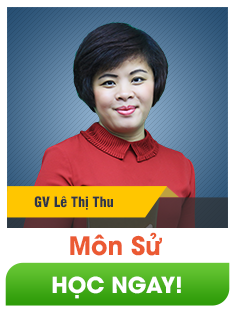Tiếng Anh 10 Unit 12 12ALook at the photo and answer the questions. A. Read the article from a student magazine. What advice does the article give? Do you think it's good advice? B. Write the words in blue next to the definitions. C. In pairs, follow the steps below. D. Match the clauses. What type of conditional does each sentence express? E. In pairs, complete the sentences in your own words. Use the simple future, simple present, or an imperative form. Then compare your sentences with another pair. F. Listen to the
Lựa chọn câu để xem lời giải nhanh hơn
Opener Look at the photo and answer the questions. (Nhìn vào bức ảnh và trả lời các câu hỏi.) 1. What decision does the man have to make? (Người đàn ông phải đưa ra quyết định gì?) 2. What decisions do you have to make this week? (Bạn phải đưa ra quyết định gì trong tuần này?)  Lời giải chi tiết: 1. The man has to decide which fork he should take. (Người đàn ông phải quyết định mình nên chọn ngã rẽ nào.) 2. I have to make a decision about doing my homework or going to the cinema with my friends. (Tôi phải đưa ra quyết định về việc làm bài tập về nhà hay đi xem phim với bạn bè.) A Vocabulary (Từ vựng) A. Read the article from a student magazine. What advice does the article give? Do you think it's good advice? (Đọc bài báo từ một tạp chí sinh viên. Bài báo đưa ra lời khuyên gì? Bạn có cho rằng đó là một lời khuyên tốt?)
Phương pháp giải: Tạm dịch: CUỘC SỐNG SINH VIÊN Việc quản lý tiền bạc Xin chúc mừng! Bạn vừa nhận được khoản vay sinh viên đầu tiên. Vì vậy, bây giờ là lúc quyết định. Bạn sẽ sử dụng nó như thế nào? Mua một chiếc điện thoại mới? Hay giày thể thao sành điệu? Ồ, đừng làm vậy! Trước khi bạn tiêu một xu nào, hãy lập ngân sách. So sánh số tiền bạn vay với chi phí của bạn (tiền thuê nhà, đi lại, ăn uống). Nếu bạn không có đủ tiền cho cảm năm, bạn có thể vay thêm. Nhưng nếu bạn vay tiền từ ngân hàng, bạn phải trả lãi. Vì vậy, nếu có thể, hãy hỏi bạn bè hoặc thành viên trong gia đình cho bạn vay tiền. Nếu họ có chút tiền để dành, họ có thể sẽ giúp bạn. Hoặc, rất nhiều sinh viên có công việc bán thời gian để kiếm tiền. Và nếu bạn là sinh viên, bạn sẽ không phải trả nhiều tiền thuế cho công việc. Với mức thu nhập này, hãy cố gắng tiết kiệm một khoản tiền cho thời điểm về cuối năm. Lời giải chi tiết: - The article gives advice about managing money. I think it is good advice. (Bài báo đưa ra lời khuyên về việc quản lý tiền bạc. Tôi nghĩ đó là lời khuyên tốt.) B B. Write the words in blue next to the definitions. (Viết các từ màu xanh vào bên cạnh các định nghĩa.) 1. money that students borrow to help pay for college: student loan 2. money you receive from work: _________ 3. money you spend: _________ 4. receive money that you have to return in the future: _________ 5. give someone money that they have to return in the future: _________ 6. a spending plan: _________ 7. put money in the bank for the future: _________ 8. the percentage (%) you pay when you borrow money: _________ 9. money you give to the government: _________ 10. get money from working: _________ Phương pháp giải: - student loan: khoản vay sinh viên - budget: ngân sách - expenses: chi phí - borrow: mượn, vay - interest: lãi - lend: cho vay, cho mượn - earn: kiếm - taxes: thuế - income: thu nhập - save: tiết kiệm Lời giải chi tiết:
1. money that students borrow to help pay for college: student loan (tiền mà sinh viên vay để giúp trang trải cho việc học đại học: khoản vay sinh viên) 2. money you receive from work: income (tiền bạn nhận được từ việc làm việc: thu nhập) 3. money you spend: expenses (tiền bạn tiêu: chi phí) 4. receive money that you have to return in the future: borrow (nhận khoản tiền mà bạn phải trả lại trong tương lai: mượn, vay) 5. give someone money that they have to return in the future: lend (cho ai đó số tiền mà họ phải trả lại trong tương lai: cho vay, cho mượn) 6. a spending plan: budget (một kế hoạch chi tiêu: ngân sách) 7. put money in the bank for the future: save (gửi tiền vào ngân hàng cho tương lai: tiết kiệm) 8. the percentage (%) you pay when you borrow money: interest (tỷ lệ phần trăm (%) bạn trả khi bạn vay tiền: lãi suất) 9. money you give to the government: taxes (tiền bạn nộp cho chính phủ: tiền thuế) 10. get money from working: earn (nhận tiền từ việc đi làm: kiếm tiền) C C. MY WORLD (Thế giới của tôi) In pairs, follow the steps below. (Hoạt động theo cặp, làm theo các bước dưới đây) 1. Make a list of all your monthly expenses (eg., bus pass, clothes, food, etc.).Write them in the table. (Lập danh sách tất cả các chi phí hàng tháng của bạn (ví dụ: vé xe buýt, quần áo, thực phẩm, v.v.). Viết chúng vào bảng.) 2. Compare your answers with another pair. (So sánh câu trả lời của các bạn với một cặp khác.)
Lời giải chi tiết: 1. - bus pass: 50.000 đồng (vé xe buýt: 50.000 đồng) - food: 2.000.000 đồng (thực phẩm: 2.000.000 đồng) - rent: 2.000.000 đồng (tiền thuê nhà: 2.000.000 đồng) - clothes: 500.000 đồng (quần áo: 500.000 đồng) - books: 500.000 đồng (sách: 500.000 đồng)
D Grammar (See Grammar Reference pp. 160-161) (Ngữ pháp (Xem Tài liệu Ngữ Pháp trang 160-161)) D. Match the clauses. What type of conditional does each sentence express? (Nối các mệnh đề. Mỗi câu diễn đạt câu điều kiện nào?)
Phương pháp giải: - Câu điều kiện loại 0: If + S + V_(s/es), S + V_(s/es) / Câu mệnh lệnh - Câu điều kiện loại 1: If + S + V_(s/es), S + will / can / may + V_infinitive Lời giải chi tiết:
1 – c: If you get a job, you earn money. => The zero conditional (Nếu bạn kiếm được một công việc, bạn sẽ kiếm được tiền.) Giải thích: mệnh đề chính ở thì hiện tại đơn => câu điều kiện loại 0 2 – d: If you use a credit card, you pay interest. => The zero conditional (Nếu bạn sử dụng thẻ tín dụng, bạn phải trả lãi suất.) Giải thích: mệnh đề chính ở thì hiện tại đơn => câu điều kiện loại 0 3 – a: If I save money regularly, I will have enough money for next summer's trip. => The first conditional (Nếu tôi tiết kiệm tiền thường xuyên, tôi sẽ có đủ tiền cho chuyến du lịch hè năm sau.) Giải thích: mệnh đề chính ở thì tương lai đơn => câu điều kiện loại 1 4 – e: If I bring my lunch to work, I will save money on food. => The first conditional (Nếu tôi mang theo bữa trưa của mình đến chỗ làm, tôi sẽ tiết kiệm được tiền ăn.) Giải thích: mệnh đề chính ở thì tương lai đơn => câu điều kiện loại 1 5 – b: If you don't have enough money for the school year, apply for a student loan. => The zero conditional (Nếu bạn không có đủ tiền cho một năm học, hãy đăng ký một khoản vay dành cho sinh viên.) Giải thích: mệnh đề chính ở dạng câu mệnh lệnh => câu điều kiện loại 0 E E. In pairs, complete the sentences in your own words. Use the simple future, simple present, or an imperative form. Then compare your sentences with another pair. (Hoạt động theo cặp, hãy hoàn thành các câu bằng ý của riêng bạn. Sử dụng thì tương lai đơn, hiện tại đơn hoặc câu mệnh lệnh. Sau đó so sánh các câu của bạn với một cặp khác.) 1. If you save 20% of your income every month, ____________________. 2. If you spend more money than you earn, ________________________. 3. If you borrow money from your parents, ________________________. Lời giải chi tiết: 1. If you save 20% of your income every month, you will buy a new laptop. (Nếu bạn tiết kiệm được 20% thu nhập mỗi tháng, bạn sẽ mua được một cái máy tính mới.) 2. If you spend more money than you earn, you will have to borrow money at the end of the month. (Nếu bạn chi tiêu nhiều hơn số tiền kiếm được, bạn sẽ phải vay tiền vào cuối tháng.) 3. If you borrow money from your parents, try to pay them back as soon as possible. (Nếu bạn vay tiền từ bố mẹ, hãy cố gắng trả họ càng sớm càng tốt.) F Conversation (Hội thoại) F. Listen to the conversation. What does the tourist want? What instructions and advice does Jim give? (Nghe đoạn hội thoại. Khách du lịch muốn gì? Jim đưa ra những chỉ dẫn và lời khuyên gì?) Tourist: Excuse me. Can you help me? Jim: Sure, what’s the problem? Tourist: I’m from Japan and I don’t have any dollars. I only have Japanese yen. Jim: If you want to change money, go to the currency exchange. Tourist: Where is it? Jim: If you go down this street, there’s a currency exchange on the right. Tourist: Oh, thank you very much. If I change my money, then I will be able to get something to eat. Phương pháp giải: Tạm dịch: Du khách: Xin lỗi. Bạn có thể giúp tôi được không? Jim: Chắc chắn rồi, có vấn đề gì vậy? Du khách: Tôi đến từ Nhật Bản và tôi không có tiền đô-la. Tôi chỉ có yên Nhật. Jim: Nếu bạn muốn đổi tiền, hãy đến quầy đổi tiền. Du khách: Nó ở đâu? Jim: Nếu bạn đi xuống cuối con phố này, sẽ có một quầy đổi tiền tệ ở bên phải. Du khách: Ồ, cảm ơn rất nhiều. Nếu tôi đổi được tiền thì tôi có thể mua gì đó để ăn. Lời giải chi tiết: - The tourist wants to change money. (Vị khách du lịch muốn đổi tiền.) - Jim advises the tourist to go to the currency exchange. He tells the tourist to go down this street and there is a currency exchange on the right. (Jim khuyên vị khách du lịch đi đến quầy đổi tiền. Anh ta bảo vị khách đi xuống cuối con phố này và có một quầy đổi tiền ở bên phải.) G G. Practice the conversation in pairs. Switch roles and practice it again. (Thực hành hội thoại theo cặp. Đổi vai và thực hành lại.) Lời giải chi tiết: Tourist: Excuse me. Can you help me? Jim: Sure, what’s the problem? Tourist: I’m from Japan and I don’t have any dollars. I only have Japanese yen. Jim: If you want to change money, go to the currency exchange. Tourist: Where is it? Jim: If you go down this street, there’s a currency exchange on the right. Tourist: Oh, thank you very much. If I change my money, then I will be able to get something to eat. H H. Make new conversations between the tourist and Jim. The tourist wants to: (Tạo ra các cuộc hội thoại mới giữa khách du lịch và Jim. Khách du lịch muốn:) - get money from an ATM. (rút tiền từ máy rút tiền tự động.) - find a bank. (tìm một ngân hàng.) - buy souvenirs. (mua quà lưu niệm.) Lời giải chi tiết: Tourist: Excuse me. Can you help me? Jim: Sure, what’s the problem? Tourist: I’m from England and I want to buy some souvenirs. But I don’t know where to buy. Jim: If you want to buy souvenirs, go to the supermarket. Tourist: Where is it? Jim: If you go down this street, there’s a big supermarket on the left. Tourist: Oh, thank you very much. Tạm dịch: Du khách: Xin lỗi. Bạn có thể giúp tôi được không? Jim: Chắc chắn rồi, có vấn đề gì vậy? Du khách: Tôi đến từ nước Anh và tôi muốn mua đồ lưu niệm. Nhưng tôi không biết mua ở đâu. Jim: Nếu bạn muốn mua đồ lưu niệm, hãy đến siêu thị. Du khách: Nó ở đâu? Jim: Nếu bạn đi xuống cuối con phố này, sẽ có một siêu thị lớn ở bên trái. Du khách: Ồ, cảm ơn rất nhiều. Goal check GOAL CHECK - Give Advice about Money (Kiểm tra mục tiêu – Đưa ra Lời khuyên về Tiền bạc) 1. Write down three things you want to do with your savings. (Viết ra ba điều bạn muốn làm với số tiền tiết kiệm của mình.) 2. In pairs, take turns saying what you want to do and giving advice. (Hoạt động theo cặp, lần lượt nói ra những gì bạn muốn làm và đưa ra lời khuyên.) A: If I save enough money, I will buy a new laptop. (Nếu tôi tiết kiệm đủ tiền, tôi sẽ mua một chiếc máy tính xách tay mới.) B: If you buy a new laptop, remember to choose a well-known brand. (Nếu bạn mua một chiếc máy tính xách tay mới, hãy nhớ chọn một thương hiệu nổi tiếng.) Lời giải chi tiết: 1. - I want to travel to England with my parents. (Tôi muốn đi du lịch đến nước Anh với bố mẹ tôi.) - I want to buy a new laptop. (Tôi muốn mua một cái máy tính mới.) - I want to help the poor. (Tôi muốn giúp người nghèo.) 2. A: If I save enough money, I will travel to England with my parents. B: If you travel to England with your parents, remember to exchange your money before you go. A: If I save enough money, I will buy a new laptop. B: If you buy a new laptop, give me your old one. Tạm dịch: A: Nếu tôi tiết kiệm đủ tiền, tôi sẽ đi du lịch đến nước Anh với bố mẹ tôi. B: Nếu bạn mua một chiếc máy tính xách tay mới, hãy nhớ đổi tiền trước khi bạn đi. A: Nếu tôi tiết kiệm đủ tiền, tôi sẽ mua một cái máy tính xách tay mới. B: Nếu bạn mua một chiếc máy tính xách tay mới, hãy cho tớ máy tính cũ nhé.
>> Học trực tuyến Lớp 10 cùng thầy cô giáo giỏi tại Tuyensinh247.com, (Xem ngay) Cam kết giúp học sinh học tốt, bứt phá điểm 9,10 chỉ sau 3 tháng, làm quen kiến thức, định hướng luyện thi TN THPT, ĐGNL, ĐGTD ngay từ lớp 10
|





















